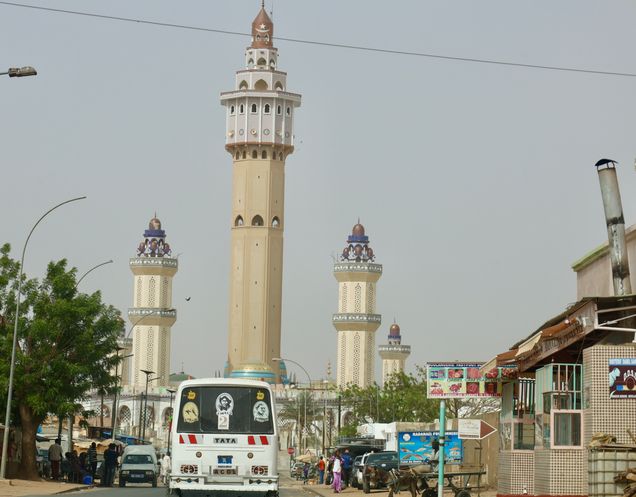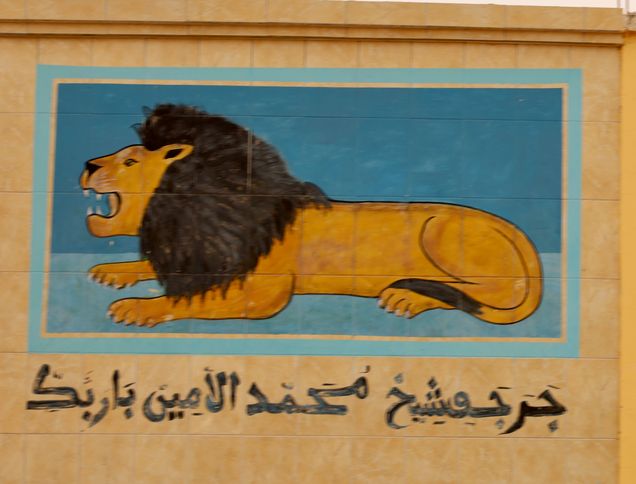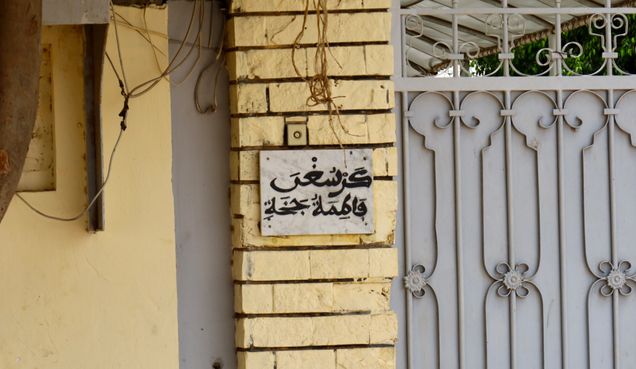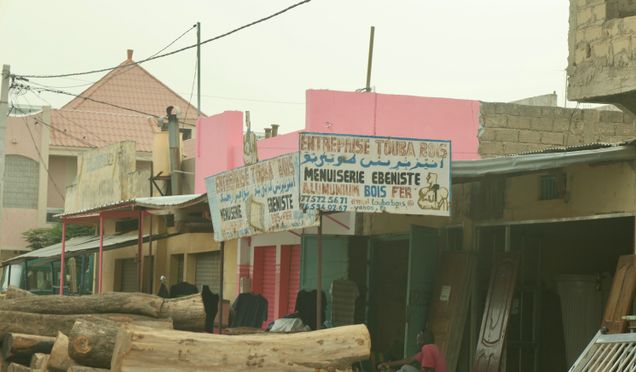Unit 6B: Khady Pouye

Metadata
| Title | Conversation with Khady Pouye |
| Interviewer | Fallou Ngom and Ablaye Diakite |
| Subject | Education, significance of Ajami literacy, impact of Ajami poetry |
| Content | Khady Pouye (Xadi Puy in the standard Wolof Latin script spelling) was born in 1982 in Dakar, Senegal. She studied the Quran at home under the supervision of a teacher. She is self-taught in Wolof Ajami as she belongs to a Murid family where Ajami poems of renowned poets are widely read and cited. In this interview, she discusses her long-standing interest in the Wolof language that led her to write her M.A. thesis on the Wolof Ajami literary tradition, focusing particularly on the work of Sëriñ Muusaa Ka (1889-1967), the most famous Wolof Ajami poet. Mrs. Pouye discusses the importance of being able to speak and write in one’s native language, and suggests that Ajami writing be taught at universities in Senegal and other West African countries. She describes how her illiterate mother had memorized numerous Wolof Ajami poems and used to draw insights from them to advise them and cultivate virtues among her children when they were young. |
| Language | Wolof |
| Script | Wolof Ajami (locally called Wolofal) |
| Location | Dakar, Senegal |
| Pedagogical content/application | Includes relevant linguistic, stylistic and cultural skills as identified in our assessment guidebook/ ACTFL guidelines |
| Access condition and copyright | These materials are subject to copyright and are distributed under the terms of the Creative Commons Attribution-NonCommercial 4.0 License, which permits non-commercial use, distribution, and reproduction in any medium, provided the original author and source are credited. For use, distribution or reproduction beyond these terms, contact Professor Fallou Ngom (fngom@bu.edu). |
| Contributors | Fallou Ngom, Ablaye Diakite, Daivi Rodima-Taylor, Elhadji Djibril Diagne, Gana Ndiaye, Alison Parker, and Frank Antonelli. |
| Required citation information | Fallou Ngom (PI), Ablaye Diakite, Daivi Rodima-Taylor Elhadji Djibril Diagne, and other contributors. 2023. “Conversation with Khady Pouye.” https://sites.bu.edu/ria/wolof/wolof-unit-6b/ |
Videos
Wolof with English Subtitles
Wolof with Latin Script Subtitles
Community Images
(click on the image for a larger view)
Pedagogical Activities
Glossary
- Am solo: To be important, significant
- Armiñoŋ or almiñoŋ b-: Aluminum, from French aluminium
- Baax-a-baax: Very good, very nice, very kind
- Bànd cassette b-: Cassette tape, from French bande cassette
- Bopp b-: Head
- Bunt b-: Door, entrance
- Déglu: To listen, hear someone out
- Gune, gone g-: Child
- Jàjj: To motivate, encourage, exhort
- Kàddu g-: Word, commitment, agreement
- Minbar: Pulpit in a mosque
- Njariñ l-: Utility, value, benefit
- Penku: East
- Rawati-na, rawatina: Above all, primarily
- Siwil b-: Civilian, from French civil
- Solo s-: Importance, significance
- Sóoróor b-: Minaret
- Tagg: To praise, celebrate, extol
- Tànn: To choose, pick
- Tënk: To summarize, restrain
- Wacc, wocc: To abandon, give up, drop, quit, divorce
- Weñ g-: Metal
- Xànjar b-: Yellow copper
- Xeeb: To underestimate, look down upon
- Xubba g-: Dome, cupola
Notes
- Dooleel nit: “To empower someone.” The phrase is used in the video to emphasize the way Wolof Ajami poets use their works to empower people by inspiring them so they can overcome the challenges they face.
- Jasaawu Sakóor or Jazāʾu Shakūr: This is the title of a long epic poem by the renowned Wolof Ajami poet Sëriñ Muusaa Ka. It is a popular poem dealing with the ordeals that Shaykh Ahmadu Bamba (1853-1927) endured at the hands of the French colonial administration, including his exiles to Gabon (1895-1902) and Mauritania (1902-1907) and house arrests in Céyeen-Jolof (1907-1912) and Jurbel (1912-1927). The poem is divided in two parts: Yoonu Géej gi (Odyssey by Sea), which deals with his experiences in Gabon where he was exiled by ship, and Yoonu Jéeri Ji (Odyssey by Land), which recounts his ordeals in Mauritania where he traveled by land, and his house arrests in Céyeen-Jolof and Jurbel.
- Taxmiis bub Wolof: This is the title of a popular Ajami poem by Sëriñ Muusaa Ka. It is modeled on the classical Arabic poetic form called takhmīs structured around five-line verses. In this poem Muusaa Ka celebrates the virtues of Shaykh Ahmadu Bamba and defends the use of African language as a language of religious discourse. He argues that all languages and people are equal and that ethnolinguistic diversity is part of God’s mercy to humanity.
- Xarnu bi: This is a title of another popular Ajami poem by Muusaa Ka, meaning The Century. It deals with the challenges rural Murid communities faced as the result of drought and the Great Depression of 1929 that occurred two years after their leader, Shaykh Ahmadu Bamba, died. In the poem, Muusaa Ka describes food shortages and numerous ordeals their communities faced and implores their departed leader to help them overcome their predicaments.
- Xibla: From Arabic qibla. It is the direction of Mecca that Muslims face when performing their obligatory five daily prayers.
- Yëkati làkk wi or yékëti làkk wi: “To lift up the language.” The phrase is used in the video interview to mean promoting and disseminating the linguistic, cultural, and intellectual heritage of Wolof conveyed through various literary genres.
Exercises:
Comprehension || Writing || Listening / Speaking and Conversation || Cultural Competence
Comprehension: Video
Comprehension: Image
Writing
Listening / Speaking and Conversation
- Xëtu Tënk ak Tontu ay Laaj: Defal ci widewoo bi ab xëtu tënk ci Wolof. Soo noppee nga jàng ko ci kanamu ndongo yi. Boo noppee, ñu laaj la ci li nga tënk, nga tontu leen.
Cultural Competence
- Woneel ay doxin walla ngëm-ngëmi aadaa yu fës ci biir widewoo bi.












